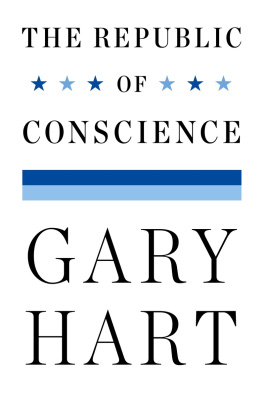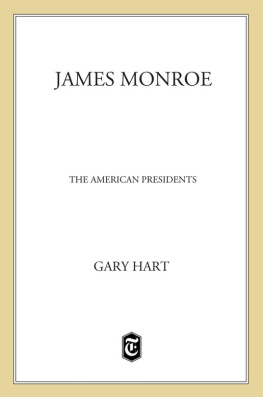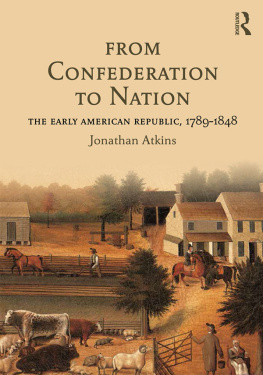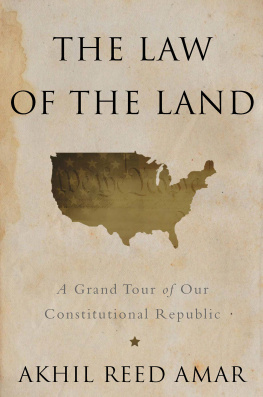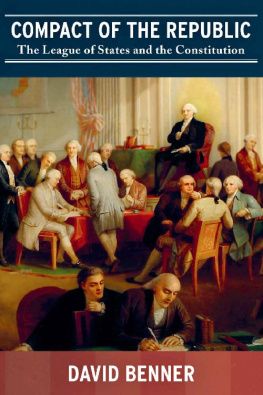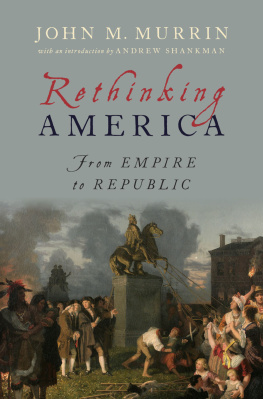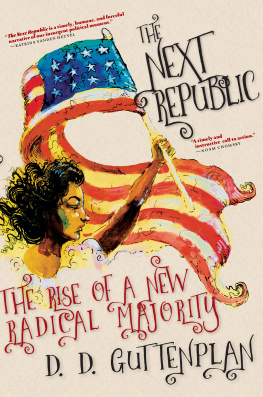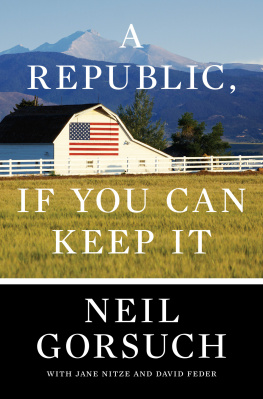Praise for The Republic of Conscience
Gary Harts The Republic of Conscience is a thought-provoking analysis of modern American democracy and how powerful special interests have impacted our national security and civil society. Its a must-read from one of the brightest minds of his generation.
Senator John McCain
Gary Hart may be out of office but hes not out of ideas. This provocative analysis is a welcome addition to the national dialogue that should take place in both parties, the news media, and the electorate as we head into another presidential election with a political system so broken it is shameful.
Tom Brokaw
This is a passionate and powerful plea for us Americans to recover the democratic-republican principles of the founders, a plea that is made all the more effective by the books clear and forceful prose. The idealism that runs through the book is not utopian; it is firmly grounded in the extensive civic experience of the author and in his clear-eyed appreciation of the realities of our twenty-first-century world. Its a very persuasive book.
Gordon S. Wood, Alva O. Way University Professor and Professor of History Emeritus at Brown University
A call to action to make reforms in campaign financing and a revival of a sense of national interest.
Booklist
A self-proclaimed political fundamentalist and staunch proponent for the reformation of the massively corrupt congressional structure, [Hart] intelligently appraises government first from a historical context, referencing the Constitution, the ideals of past presidents, Federalists, and even foreign theorists like Machiavelli. He contrasts this with an astute discussion on the decline in moral authority of twenty-first-century governmental policy and procedure, and he places blame on the countrys foreign entanglements, its accepted burden of policing the world, deteriorating social justice, and an imbalance of security and libertynone of which our pragmatic forebears ever intended. Hart is insistent that the only way to improve our governmental track record is to restrategize with progressive thinking, the reconciliation of current political policies, and a divergence from the concentrated economic powers that have such an undue influence on members of Congress and other politicians.... Harts impassioned plea for reform seeks to empower political compatriots to rethink the direction of US governance, thus closing the gap between promise and performance. A proactive appeal to restore confidence in the American republic.
Kirkus Reviews
Harts book is a warning flare to draw our attention to our many departures from the Founding Fathers intentions.
Connie Schultz, The Washington Post
AFTERWORD FOR THE PAPERBACK EDITION
Our founders were superb politicians even as they universally disclaimed interest in politics. But the politics they disdained were of the partisan, ideological, and interest-based variety they described as factions. Maneuvers and trade-offs, most noticeably on slavery, in the interest of achieving a Constitution is one thing. Pandering to narrow causes, dancing attendance to ideological blocs, fetching and carrying for this or that billionaire are quite another.
Those defending the circus created to select our next national leadership in 2016 do so with the casual observation that it has always been thus in American politics. But it has not always been thus. In theory, our political system is brilliant. In practice, it is much less so. Nevertheless, we have known periods in our history, including during this authors lifetime, when the performers, outliers, and clownish figures were fewand those approaching statesmanship were many more.
The American dream has become a clich. But the American ideal, based on timeless principles, is much less so. From De Tocqueville onward, astute foreign observers have repeatedly noted the idealism evident in the American character. It waxes and wanes. It waxes most when leaders unafraid of seeming naive appeal to that idealism, especially among the young. Such was the case in the brief age of John Kennedy.
But how does a candidate for national office appeal to idealism while grubbing for money, while surrounded by the privileged, while toasting the elites and insiders?
Public service is a noble profession, it used to be said. Not much anymore. Conquering the revolving door of power in Washington requires certain qualities. Idealism is not one of them. As a candidate for national office, I was honored to work with some of the finest young Americans any generation has ever produced. Very few of them found permanent residence in Washington, and even fewer stepped onto the treadmill of access, power, and privilege. A remarkable number of them have devoted their lives to humanitarian causes.
It is difficult if not impossible to produce a principled vision of the future when the financing of a candidacy is provided by so many diverse and insistent interests. Campaign events are now of two sorts: those attending to hear the candidate say what they want to hear on their issue, or those of a broader but still partisan nature who expect every rhetorical button of the day to be pushed. This leaves little room for greatness.
It is even more remarkable that we have quickly and quietly moved into an era devoid of general campaign audiences composed of everyday Americans concerned with their future. Campaign events today are often not open to the general public. That fact says volumes.
Not every era is a simple continuation of the past. There are turning points where new realities emerge and require response. Traditional responses seldom avail in such times. Creativity and imagination, unleashed from partisan shackles, are required. At this point the new realities are many: globalization; the information revolution; the disintegration of the nation-state; the rise of tribalism, fundamentalism, and ethnic nationalism; the changing nature of conflict; changing climate; mass migrations; and the list continues.
Some seek solace in simple, comforting ideologies. Others seek power for its own sake. And still others embrace the security of wealth and its privileged enclaves. As for Americans seeking refuge from politics, they can find it, but not for long. They may not be interested in politics, but politics is interested in them.
We should not be surprised if there is only a modest turnout of voters in 2016. This is especially true when conservatives have mounted a stealth campaign to produce barriers to voting. It is even more true because of the overall domination of money, virtually all of it representing one special interest or another. The political media even provide honors for those raising the most money.
The early fear of oligarchy in this campaign, the dominance of the known and powerful families, may turn out to have been overblown. A populist movement of sorts has arisen in opposition. There are sufficient parallels to the Gilded Age of the second half of the nineteenth century to attract our attention. Out of the excesses of that age, and the excesses of the responses to it, arose a progressive era that reformed political, corporate, and financial institutions and laid the basis for more enlightened government, at least until the combination of World War I and the Great Depression that followed brought it to a halt.
Despite the early stages of a national leadership campaign that rewards small bore antics and rejects large bore statesmanship, there is still hope for redemption of American politics and restoration of the ancient republican ideal of our founders. An increasingly bright searchlight is focusing on the explosion of lobbying interests discussed in this book. There is still that latent streak of mystical idealism that may, against considerable odds, bring us home safely yet again.

